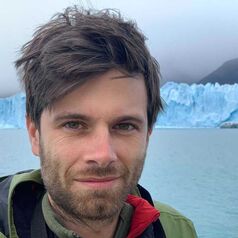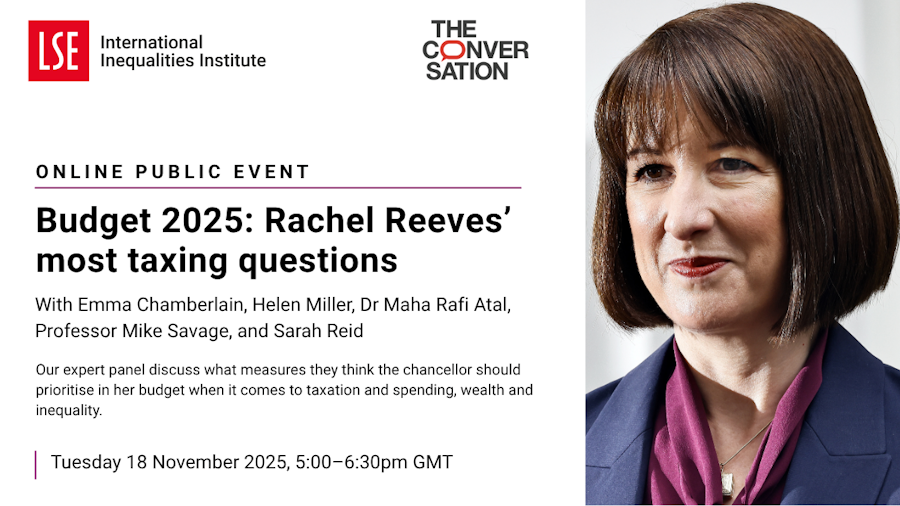|
Farmers are not only on the front line of climate change but are also increasingly caught up in the political battle over the switch to renewable energy. Reform UK is trying to attract British farmers to its burgeoning anti-solar farm campaign as it confronts what it calls “net zero nonsense”. But to do this it will have to overcome farmers’ widespread concern about the impact of climate change on their way of life.
Researchers Alex Heffron and Tom Carter-Brookes explain how solar opponents are drawing on farmers’ real fears over what converting agricultural land for energy production could mean for their livelihoods and their identities. However, the pair argue that there are ways of ensuring a just transition for farmers that could retain their support for climate action.
Also today, how to stop your brain falling for the latest beauty fad, and how the new space race is turning into a contest between Elon Musk, Jeff Bezos and China.
|

|
Will de Freitas
Environment + Energy Editor
|
|

Richard Lincoln / Alamy
Alex Heffron, Lancaster University; Tom Carter-Brookes, Keele University
Reform UK is exploiting opposition to solar panels – but most farmers are more worried about climate change.
|

Our brain’s perception of beauty can be re-trained.
bigbambe/ Shutterstock
Laura Elin Pigott, London South Bank University
Social media exploits our brain’s responsiveness to reward and social cues — enforcing the narrow beauty ideals we internalise.
|

Illustration of Blue Origin’s Mark 1 lunar lander.
Blue Origin
Ian Whittaker, Nottingham Trent University
The US space agency has opened up a lunar lander contract held by Space X to competition.
|
World
|
-
Matt Sleat, University of Sheffield
J.D. Vance is religious, has conservative views on social issues, but also believes in big government’s power to change society.
-
Tessa Devereaux, SOAS, University of London
Decades of neglect, corruption and state brutality have allowed armed group JNIM to gain the support of Mali’s marginalised communities.
-
Jane Lavery, University of Southampton; Nuala Finnegan, University College Cork
Day of the Dead celebrations changed during COVID, shaped by anxieties about the ‘shadow pandemic’ of gender violence.
|
|
Politics + Society
|
-
Francesca Jackson, Lancaster University
Ever since Andrew announced that he would no longer use his official titles, pressure had been mounting on the king to go further
-
Sarah Singer, School of Advanced Study, University of London
Under UK law, the home secretary has a duty to pursue removal of foreign national offenders.
|
|
Arts + Culture
|
-
Matt Jacobsen, Queen Mary University of London
A claustrophobic film that defies convention.
-
Sophie Heywood, University of Reading; Emma Page, University of Reading
Translations will expand the reading worlds of children.
-
Joel Gray, Sheffield Hallam University
Despite some surprising omissions, this documentary grounds the impact of British girlbands in a valuable wider context.
-
Andrew Edwards, The University of Law
Vampires reflect the prejudices of their times.
-
Matt Jacobsen, Queen Mary University of London
Littered with references to some of the greatest scary stories ever told, this film is a proper induction into the cinematic world of terror.
|
|
Business + Economy
|
-
Stephen Wood, University of Leicester
But homeworking throws up tricky paradoxes that need to be understood.
-
Chau Le, University of Lincoln
Could arms manufacturers soon become an everyday investment in ESG funds?
|
|
Environment
|
-
Diogo Veríssimo, University of Oxford; Sally Sinclair, University of Kent
A study of Interpol notifications suggests only a few environmental crimes are being flagged.
-
Jess Davies, Lancaster University; John Quinton, Lancaster University
Only 1.5% of soil arriving at waste facilities in England was classed as hazardous, suggesting we are throwing away mostly healthy, usable soil.
|
|
Health
|
-
Jack McNamara, University of East London
Men needed to do roughly nine hours of exercise to see a 30% reduction in their heart disease risk – while women only needed to do around four hours.
-
Gulnaz Anjum, University of Limerick; Mudassar Aziz, University of Oslo
Across the Caribbean, rebuilding after disaster means more than clearing debris. The real recovery is psychological, and it can take years.
-
Damian Bailey, University of South Wales; Angelique Van Ombergen, University of Antwerp; European Space Agency
Spaceflight rewires the human body. Muscles shrink, bones thin and fluids shift towards the brain – but these changes may help improve life on Earth.
|
|
Science + Technology
|
-
Holly Crudgington, University of Oxford
It isn’t just social isolation that’s a risk factor for self harm.
|
|
|
|
| |
| |
| |

|
| |
| |
| |
|
|
|
|